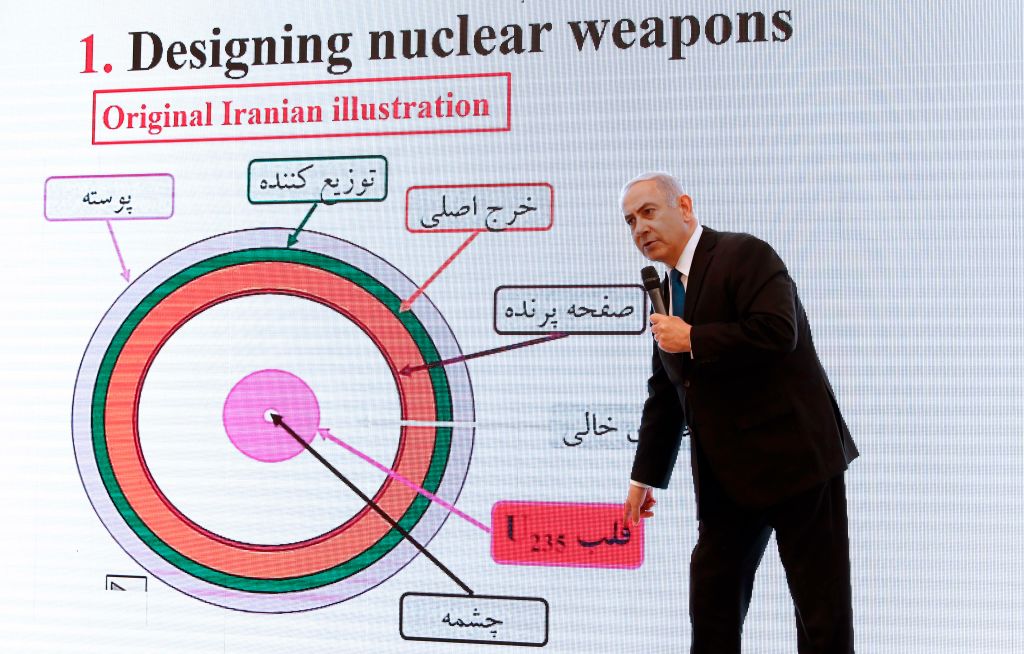Israelis will go to the polls on Tuesday for the fourth time in two years, with the future of their prime minister, Benjamin Netanyahu, hanging in the balance. Public opposition to Netanyahu has only intensified in the past year because of his divisive politics and poor management of the Covid-19 pandemic. Yet his political survival owes much to the public perception that only he can be trusted when it comes to Israel’s security.
Netanyahu’s no-holds-barred opposition to Iran’s nuclear program and regional entrenchment has won him much support in Israel. Opinion polls over recent years demonstrate a broad consensus among Israelis against the Iran nuclear deal, the Joint Comprehensive Plan of Action or JCPOA. Although the agreement was flawed in its recognition of Iran’s right to nuclear enrichment and the temporary nature of the constraints it imposed, it still had the benefit of distancing Iran from a bomb for 10 to 15 years and included unprecedented verification and monitoring of nuclear sites.
Yet Israel’s prime minister believes that the agreement emboldened Iran by lifting sanctions that discouraged its regional malfeasance. Netanyahu’s deeply controversial appearance before the US Congress in March 2015 in which he attacked the planned nuclear deal with Iran was without precedent. His government is now continuing the same line of attack as the new US administration explores the possibility of rejoining the nuclear deal with Iran.
According to the outgoing deputy head of the Mossad, identified only as ‘A’, Netanyahu’s exposure of a nuclear archive captured in Iran was a key factor in persuading US President Donald Trump administration to withdraw from the nuclear deal in May 2018. The revelation of the archive confirmed suspicions that the Iranians had been working on a military nuclear program up until 2003. However, it didn’t provide evidence that the Iranians were violating the JCPOA.
Read the article by Azriel Bermant in The Strategist.

